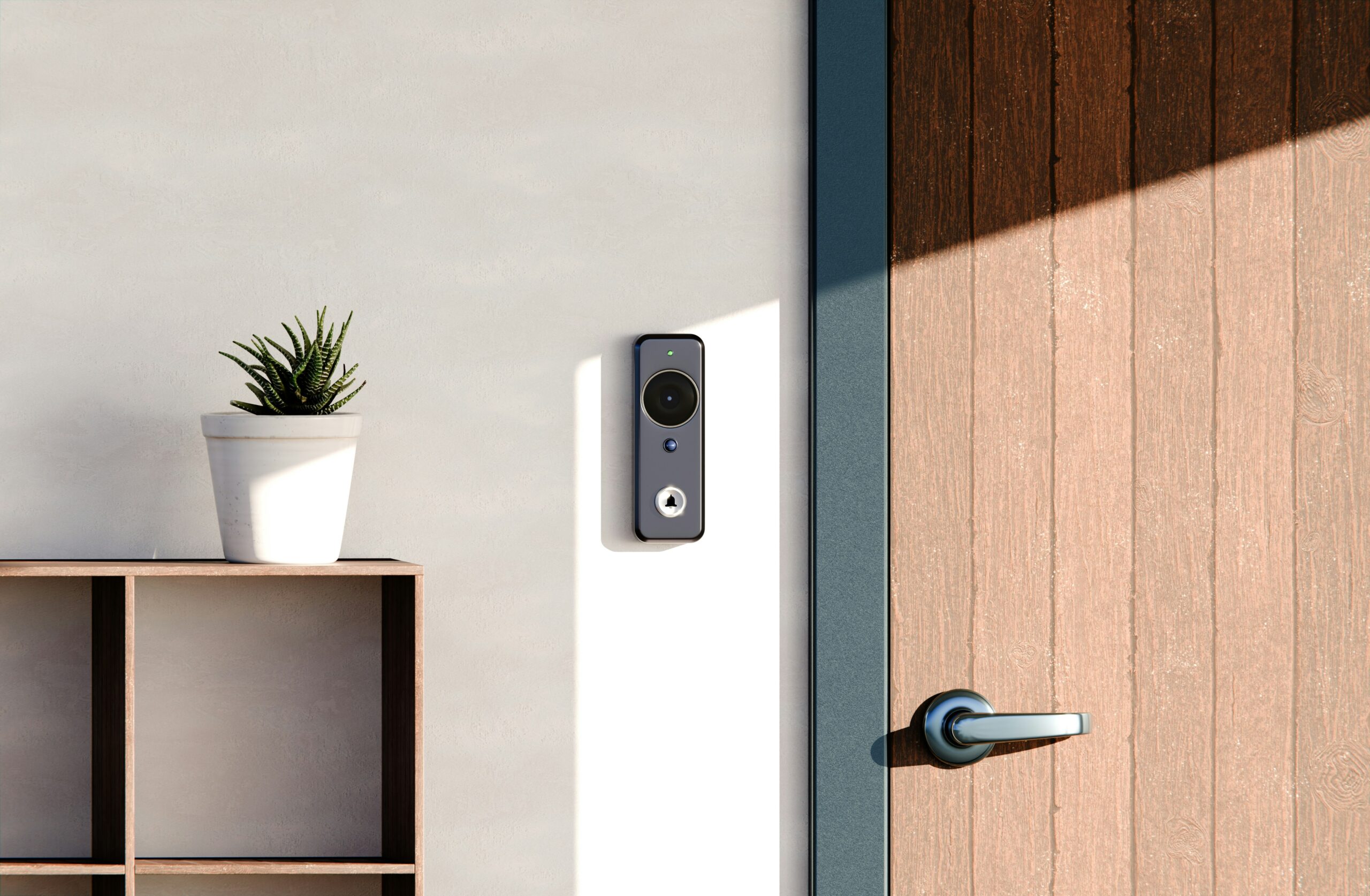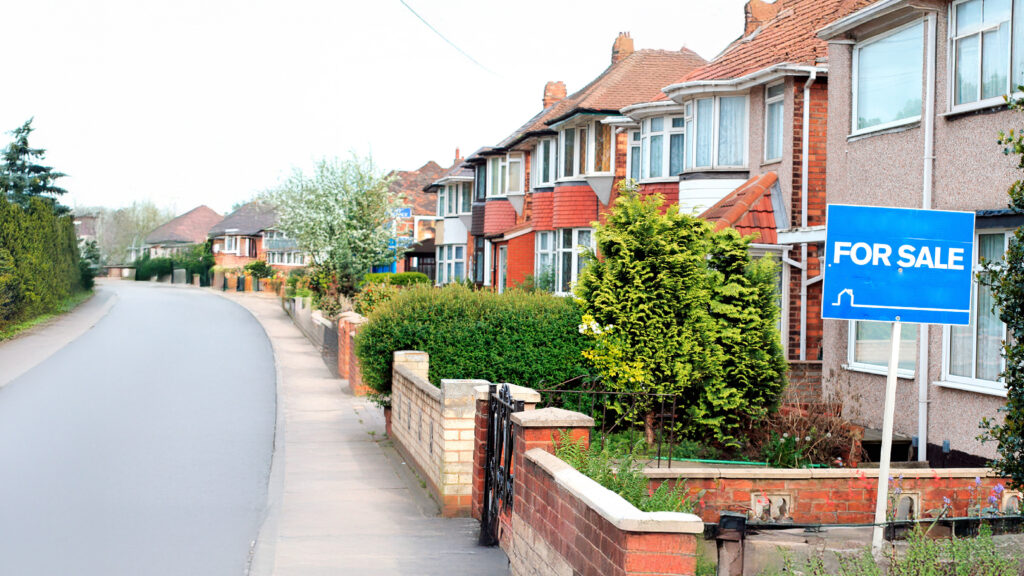
Are Ring Doorbells Legal?
Ring doorbells are everywhere now, from terraces in Leeds to semis in Swansea and cottages in the Outer Hebrides. But as they’ve grown in popularity, so have the legal questions, like: Are Ring doorbells legal? Are Ring doorbells legal in flats? And what counts as invasion of privacy?
This guide will walk you through what’s allowed, what to watch out for and what to do if you’re selling a home that’s fitted with one. It covers flats, houses, shared entrances and a few of the legal grey areas in between.
Let’s take a look at how to stay on the right side of the law when it comes to smart doorbells.
Are Ring doorbells legal?
Yes, Ring doorbells are legal in the UK. You’re allowed to record footage on your own property to help protect your home and deter crime. That includes video and audio, and it includes smart doorbells and CCTV systems.
But there are limits. As the ICO’s guidance states, if your Ring doorbell records only your own front path or doorway, you’re unlikely to have any legal issues. The moment it records anything beyond your boundary, things get trickier.
For example, if your camera picks up your neighbour’s front door, their windows or a shared walkway, you might fall under data protection laws. That means you’d need to follow specific rules under the UK GDPR, just like a business would. These rules include:
- Telling people they’re being recorded
- Only using the footage for security
- Not sharing it without a valid reason
- Deleting it when it’s no longer needed
You’re not banned from recording these areas, but you do have extra responsibilities. If someone makes a complaint and you’ve not followed the rules, they could take you to court.
Want to keep things simple? Adjust your doorbell’s field of view so it sticks to your own space. It’s the easiest way to stay compliant and avoid hassle.
Are Ring doorbells legal in flats?
Things are a bit more complicated if you live in a flat. That’s because you usually share access areas like hallways, landings or main entrances with other residents. Your front door might not even open straight onto the street.
So if your Ring doorbell records video or audio in any shared space, you’ll probably need to comply with UK GDPR rules. These apply whenever you’re capturing footage beyond your private home or garden.
You also need to think about the following:
- Some leases ban you from altering the front door or communal walls. That includes adding a Ring doorbell.
- Even if your lease allows it, your management company might not. Always check first to avoid complaints or being asked to remove it.
- While you don’t need permission to film your own front step, if your camera points into shared areas, you should be clear about what’s being recorded and why.
If your flat is rented, you’ll also need your landlord’s permission before installing anything. And if you’re in social housing, extra rules may apply.
In short, Ring doorbells can be used in flats, but it’s not as simple as just sticking one up. You’ll need to check the legal, technical and practical angles first.
How to make sure you’re using your Ring doorbell legally
If you’ve already got a Ring doorbell or are thinking of installing one, there are a few simple steps you can take to stay on the right side of the law.
First, check where the camera is pointing. If it only records your own front door, garden or driveway, you’re probably fine. But if it catches pavements, shared areas or your neighbour’s windows, you’ll need to follow UK GDPR rules, even if it’s just for personal security.
That means:
- Letting people know they’re being recorded. A small sign can be enough.
- Only recording what you really need.
- Not storing footage for longer than necessary.
- Making sure footage is secure and not shared without a clear reason.
It’s also worth checking the app settings. Some Ring devices allow you to set ‘privacy zones’ to block out certain areas from recording. That can help you avoid capturing areas you shouldn’t.
If a neighbour complains, try to resolve it calmly. They have a right to raise concerns, especially if your camera records their property or conversations. But as long as you’re using it fairly and for a genuine reason, most issues can be sorted out with a quick chat.
What happens if you break the rules?
If your Ring doorbell records people without a valid reason, or you misuse the footage, you could land in hot water. In rare cases, the whole thing could even escalate to a legal issue.
For example, in 2021, a UK court ruled that one homeowner’s use of Ring devices broke data protection laws. His cameras captured too much of his neighbour’s property, and he had no signs up. The court said it was a clear breach of UK GDPR.
Consequences can include:
- Complaints to the Information Commissioner’s Office (ICO)
- Orders to delete footage
- Fines or legal costs in extreme cases
It’s rare for things to go that far, but it does happen. The best way to avoid problems is to keep things proportionate, respectful and transparent. You’re allowed to protect your home, but not at the cost of other people’s privacy.
Thinking of selling? Don’t let your Ring doorbell hold you back
So yes, Ring doorbells are legal in the UK. The answer to ‘Are Ring doorbells legal in flats?’ is a little muddier, but it’s easy to steer clear of legal battles and the like.
As with a lot of things in property, whether Ring doorbells cause an issue is all about how you use them. Keep your camera pointed at your own front door. Be transparent. And if anyone complains, try to sort it calmly and clearly.
If you’re selling a flat, the rules are tighter. And if you’re dealing with difficult neighbours or privacy complaints, that could slow your sale down.
But you’re not on your own in this. At Sell House Fast, we’re a cash house buyer that works on your terms. We’ve helped people across the UK achieve a fast flat sale or house sale without the stress of viewings, agents or long property chains. No delays, no surprises, just a guaranteed offer you can count on.Ready to ring the changes and move on with your property journey? Just enter your postcode to get a free, no-obligation cash offer. We’ll take care of the rest and make it fast, simple and stress-free.


